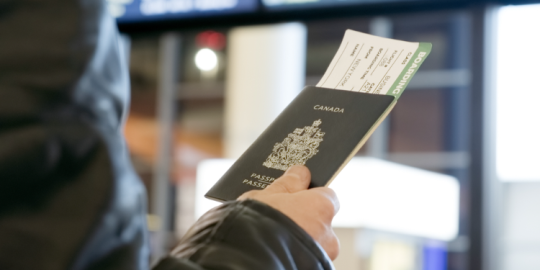Helsinki
Helsinki isn't a new city in work-life balance rankings. And there must be a reason why. The Finnish capital is renowned not only for its career opportunities for foreign professionals but also for the benefits that come along. One of the first things to know when going to work in Finland is that the working week never exceeds 40 hours! Employees who work at least 6 hours a day are entitled to a lunch break as well as coffee breaks. But that's not all! You can also cumulate annual leave when you work at least 14 days or 35 hours per month! And as if that weren't enough, Finland recently introduced flexible hours so that employees can spend more time with their families. In Helsinki, as in the rest of the country, family is very important. This is why parents, including guardians, can opt for flexible work. Besides, Finland is one of the world's most generous countries when it comes to parental leave. Both parents can share their parental leave until the child reaches the age of 3, without fear of their job security.
Oslo
Nordic cities stand out not only for their quality of life but also for their work-life balance. And people in Oslo won't tell you otherwise. In the Norwegian capital, as in the rest of the country, the typical work week rarely lasts more than 37.5 hours. Generally, employees finish earlier on Friday to enjoy a long weekend with their family. Flexible hours are also very common in Norway, which allows better time management and improve employee productivity. With the global health crisis, remote working has become increasingly popular over the past year, allowing employees to spend more time with their families. Like all Nordic countries, Norway also offers generous parental leave. This allows both parents to spend more time with their children, who are a priority for Norwegian society. It's also worth noting that even adoptive parents and same-sex couples are eligible for parental leave in Norway.
Zurich
Compared to Helsinki and Oslo, you might think that people work more in Zurich, but that is not necessarily true. Proper planning is the key, and the Swiss are definitely good at that. The legal working week in Zurich, as in the rest of the country, is 45 hours for certain sectors, including industries, office workers, technical jobs, sales professionals, etc. For the rest, the workweek comprises 50 hours. Still, most companies care about their employees' well-being and productivity. So the typical work week usually consists of 41 hours. But one of the most attractive things about the Swiss labour market is its flexibility. Employees can manage their arrival and departure times, although most prefer to arrive early to leave early. Besides, employees in Switzerland benefit from four weeks of paid leave, without counting the number of public holidays, which generally vary according to the cantons. And from Christmas to New Year period, offices are closed!
Stockholm
Like its neighbours, Sweden also gives significant importance to work-life balance, and you won't miss it by making Stockholm your new home. The Swedish capital is full of professional opportunities, but it also has caring employers who greatly value family ties. This is why, as in other Nordic countries, parents get to share their parental leave in order to spend as much time as possible with their children. In fact, whether you're adopting or giving birth to a child, both parents can benefit from a total of 480 days of paid parental leave. In addition to flexible hours, sabbatical leaves have also benefited many employees in Sweden, especially women. Regarding the work week, it generally comprises 40 hours. Although remote work is quite widespread in Sweden, employees are under no obligation to work overtime. And in addition to their minimum five weeks annual leave, employees in Sweden can enjoy several public holidays throughout the year.
Copenhagen
Copenhagen is a city that needs no introduction, neither regarding career prospects nor in terms of work-life balance. The Danish capital can boast a 37-hour workweek. When employees work overtime, they can either be paid or benefiting from time-off. Overall, Danes work 1,563 hours per year, which is lower than the OECD (Organization for Economic Cooperation and Development) average of 1,739 hours. Indeed, most offices are empty around 5:00 p.m., whether in Copenhagen or other Danish cities. Most employees start their day early and leave the office around 4 p.m. to pick up their children from school. So they can relax and spend the afternoon with their family. Employees benefit from 5 weeks of paid leave per year. In July, which is the Summer, most offices are closed for vacations. Note that in Denmark, parents can also take time off to take care of their sick children.
If you're not yet convinced, it's also worth noting that these cities have been at the top of many rankings for years, including for living standards, quality of life, etc.
Sources :
















